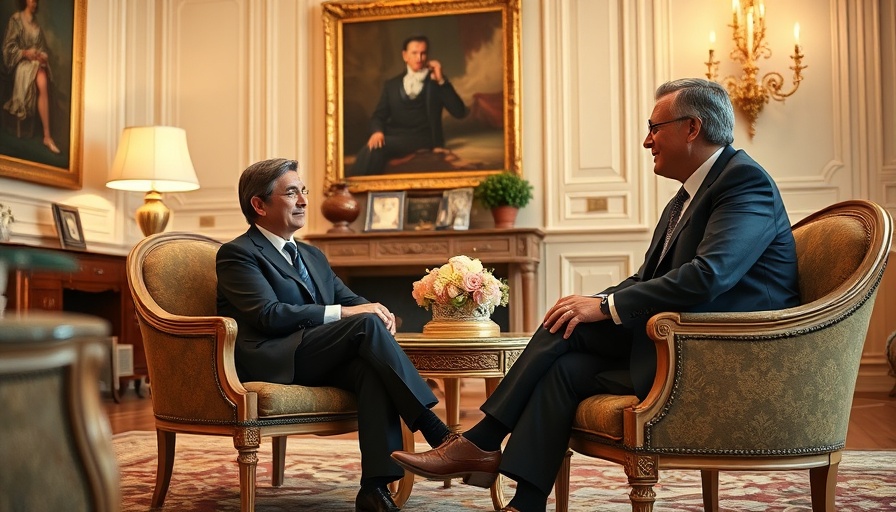
A Fundamental Shift in Global Alliances
March 2025 is shaping up to be a significant turning point in international relations, particularly for the United States. In a dramatic pivot seen as a departure from decades of supportive alliances, the U.S. administration under President Donald Trump has taken an unprecedented stance favoring autocratic regimes over its traditional democratic partners. This year has already demonstrated the fragility and potential reconfiguration of global alliances, raising concerns among allies about America's commitment to established democratic values.
The U.S. Stands Alone
On February 24, 2025, the United States declined to vote against a United Nations resolution condemning Russia's ongoing aggression in Ukraine. This move not only shocked allies but also placed the U.S. alongside nations such as Russia, Belarus, and North Korea in a vote that presented a stark contrast to the founding principles of the UN, which assert the sovereignty of nations.
International Reactions and Consequences
In response to the U.S. administration’s controversial pronouncements, leaders from democratic nations worldwide, including prime ministers from across Europe and beyond, expressed solidarity with Ukraine, defying Trump's overt efforts to sideline Ukrainian President Volodymyr Zelensky. Notably, UK Prime Minister Keir Starmer welcomed Zelensky warmly, demonstrating that many nations still prioritize democratic values even as U.S. policy attempts to realign.
Comparing Approaches to Foreign Policy
The shift in U.S. policy has sparked fierce debates at home and abroad. Critics worry that Trump's administration is undermining essential alliances and rejecting the multilateral principles that have long anchored U.S. foreign policy. Just weeks prior, former Secretary of State Antony Blinken emphasized the importance of these alliances. The current administration appears set on a path that may endanger international stability and cooperation.
As the U.S. drifts further from its allies, questions linger about the implications for global security and the democratic principles that have historically guided foreign relations. The decisions being made now could define not only the United States’ future but also the trajectory of democratic governance worldwide.
 Add Row
Add Row  Add
Add 




Write A Comment